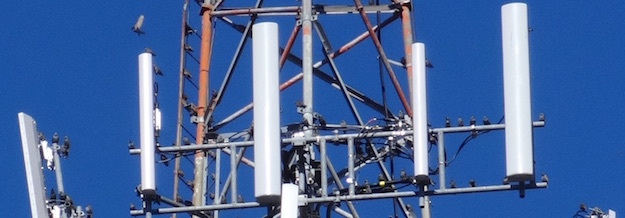
The California senate’s governance and finance committee did indeed shred senate bill 649 but it sent the pieces on toward a full floor vote anyway. It still severely restricts, if not completely eliminates, the ability of cities and counties to control where cell sites are placed, and requires them to lease street lights and other vertical assets to mobile carriers on demand for a nominal price.
Amendments were negotiated behind closed doors but not publicly released prior to the hearing on Wednesday. As one opponent, speaking for the League of California cities noted, it’s hard to “know what we’re against” when no one except some committee members and lobbyists have seen the amended bill. Which might have been why he fell back on nonsense and tried to make the argument that wireless service “has no public benefit”.
It’s true that, at least as originally conceived, SB 649 would result in a massive transfer of public assets into the private pockets of mobile carriers. But mobile broadband clearly has public benefits, even within the narrow definition that agencies and non-profit organisations often use: give me the money. (Although they’re not alone in that).
It was a much more civilised affair than the chaotic hearing in the senate’s energy, utilities and communications committee a couple of weeks ago. Senator Ben Hueso (D – San Diego) led a fire team of lobbyists from AT&T, Verizon and the mobile industry’s lobbying front, CTIA and argued for the bill. He’s the author, although that’s not to be confused with whoever actually wrote the original language – that came from the bill’s sponsors. The companies represented by those lobbyists, in other words.
Representatives from cities and counties argued against it, as did a lobbyist for California cable companies who wanted to safeguard the special privileges her industry has extracted over the years.
The next stop for the bill is the senate appropriations committee.
